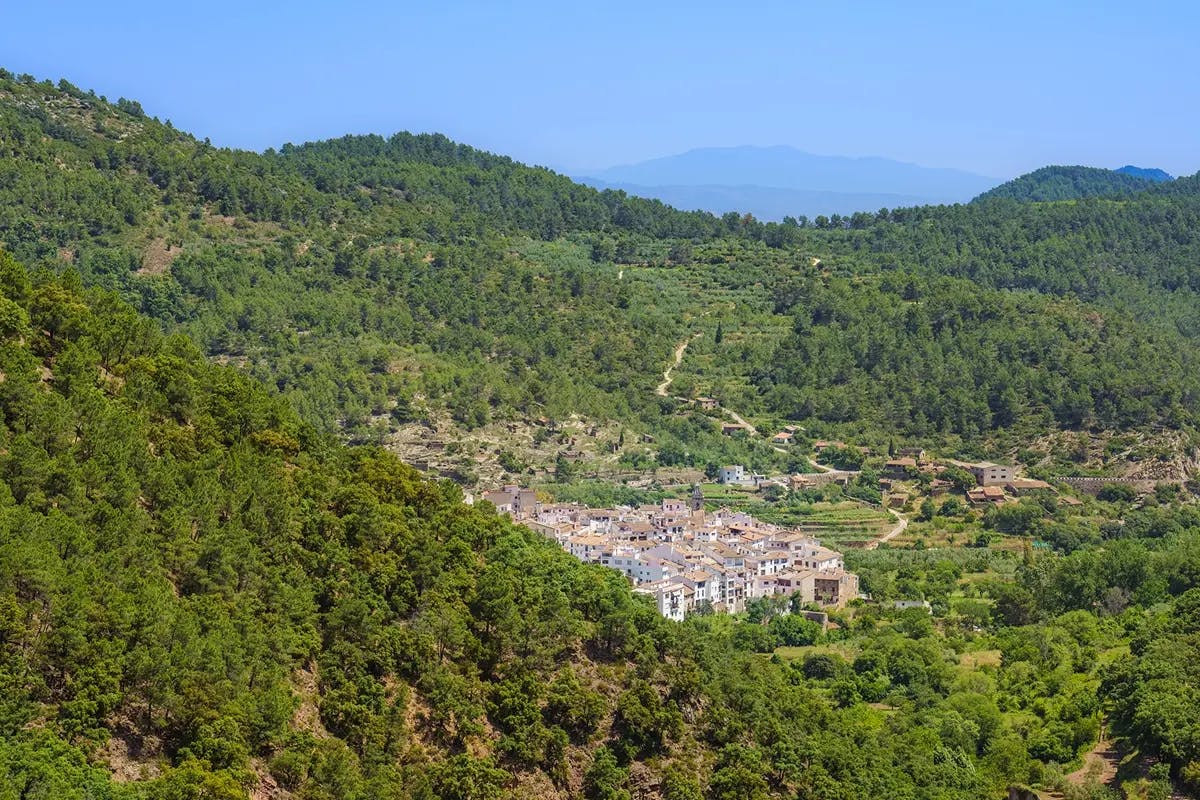
Alto Mijares Ecosystem Restoration
Community-led effort to restore wildfire-affected land, creating a resilient ecosystem that supports biodiversity, captures CO₂, and revitalizes the local economy.
About the Project
Alto Mijares, in southwestern Castellón, is a mountainous region shaped by the upper Mijares River. It is one of the coldest areas in the province and features springs, ravines, caves, and natural pools—ideal for hiking and climbing. Its diverse wildlife includes wild boars, roe deer, mountain goats, otters, and birds of prey like golden and Bonelli’s eagles.
The village of Fuente La Reina lies on the rugged northern slopes of the Montalgrao range, at 800–1100 meters. It is part of the Natura 2000 Network, protecting its rich biodiversity.
The 2023 Wildfire: A Natural Tragedy
In March 2023, a wildfire started in Barranco de Sentenal, Villanueva de Viver, accidentally during maintenance work. Spreading rapidly, it forced evacuations in several villages, including Fuente La Reina, and burned 4,500 hectares.
The impact on nature was devastating, with large areas of forest and scrubland destroyed. The loss of natural habitats affected numerous species of fauna, including birds, mammals and reptiles. In addition, soil quality was compromised, increasing the risk of erosion and hindering the natural regeneration of vegetation.


The Alto Mijares Ecorestoration Project: A Community-Led Restoration
In August 2024, a year after the wildfire, the Fuente La Reina Town Council and Desert Leaves Foundation launched a restoration initiative. This effort benefits both the community and the environment by:
- Restoring an appealing landscape;
- Creating a fire-resilient, diverse ecosystem;
- Absorbing CO₂ as trees grow;
- Improving groundwater recharge and reducing flood risks;
- Revitalizing the local economy, especially tourism and hospitality.
The Alto Mijares Ecorestoration project spans three plots selected for soil quality, accessibility, and vegetation condition.
Initial work includes felling dead trees to prevent hazards and using burnt trunks to create erosion barriers. Micro-basins (0.8–1 m²) are also built to retain rainwater and irrigation runoff, improving plantation success.
Future Forest: A Long-Term Commitment
A total of 8218 trees and shrubs from seven species will be planted. Less flammable species are placed on the outer edges, with fire-resistant species forming a perimeter barrier. Individual guards protect plants from wildlife.
Over 30–40 years, these trees will sequester around 1352 tonnes of CO₂. Aftercare includes irrigation for two years, replanting failed saplings, installing informational signs, and vegetation management to support growth.
Your Impact
- 15€ plants 1 tree
- 45€ plants 3 trees
- 90€ plants 6 trees
Location
Fuente La Reina, Spain
Timeline
2024-2026
Target
8,218 trees and shrubs across 8.4 hectares
Carbon Sequestration
1,352 tons of CO₂ over 30–40 years
Tree Species
4,221 Aleppo pine (Pinus halepensis), 2,195 Portuguese oak (Quercus faginea), 430 Holm oak (Quercus ilex), 430 Strawberry tree (Arbutus unedo), 942 Whitebeam (Sorbus aria)
Join Us in Restoring Drylands
Your support can help us reach our goal of creating a greener, more resilient dry regions.